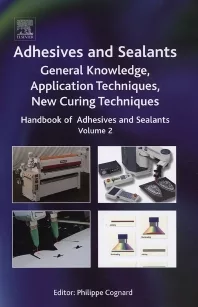Extension of the GRA to Professional Uses to Impact Adhesives and Sealants End-Users
FEICA proposes the development of a European platform for information and training of professional users to cover risks from harmful chemicals instead of a generic ban of substances for professionals.

Александр Довянский / iStock / Getty Images Plus via Getty Images
On October 14, 2020, the European Commission published its Chemicals Strategy for Sustainability (CSS), which is part of the European Union’s zero pollution ambitions outlined in the European Green Deal. The CSS is a major initiative that will redefine the EU chemical policy, prioritise intervention and substitution, and move sharply towards generic restrictions.
The CSS contains 56 actions, most of them legislative changes, including a targeted revision of REACH. The extension of the Generic Approach to Risk Management (GRA) to professional uses will have significant impacts on users of adhesives and sealants.
The European Commission would like to extend the scope of application of the Generic Approach to Risk Management (Art 68.2 of REACH). The scope would be extended from consumers to professional users, and from carcinogens, mutagens and reprotoxic chemicals (CMR) to other hazard classes (some under discussion).
The generic approach to risk management, also called the hazard-based approach, targets chemicals for regulatory action based on intrinsic hazard properties only — regardless of where and how the chemicals will be used, and regardless of whether there is any actual risk present.
Under the generic approach to risk management, no risk assessment takes place, and, therefore, use conditions and risk management measures in place for ensuring safe use are not considered. This could result in professional users (such as workers in the construction sector or repair shops) not being allowed to work with adhesives and sealants that contain substances with hazardous properties.
FEICA considers the extension of the generic approach to risk management to professional uses inappropriate and disproportionate. The use of chemical products by professional workers differs considerably from that by consumers and should, therefore, not be subject to the same restrictions or prohibitions. In fact, professional users have more characteristics in common with industrial users than with consumers. Should the need for a specific regulatory risk management measure regarding professionals be identified, the current legal framework already provides an appropriate set of tools.
Professional workers perform tasks that are important for society and the circular economy, and they need chemical products to perform those tasks. The application of the generic approach would adversely affect the availability of substances and products. Professional workers, such as construction workers or workers in repair shops, would end up having to work with products available to consumers, the technical functionalities provided by the restricted chemicals being unavailable. The range of potentially affected uses is increasing enormously, and the extension to additional hazard classes exacerbates the problem.
FEICA members are committed to ensuring the highest level of protection for professionals and believe that there are ways to safeguard professional workers other than generic substance bans without a risk assessment having been performed. It therefore aims to promote the development of a European platform for the information and training of professional users covering the risks arising from the most harmful chemicals. This initiative would be more proportionate than the generic ban of substances for professionals.
Learn more at www.feica.eu.
Looking for a reprint of this article?
From high-res PDFs to custom plaques, order your copy today!







